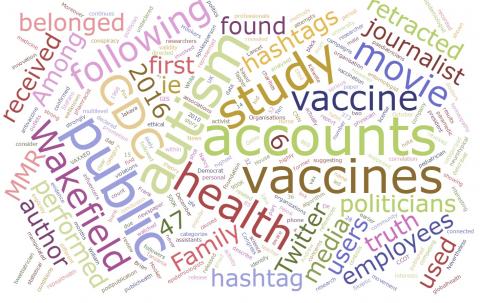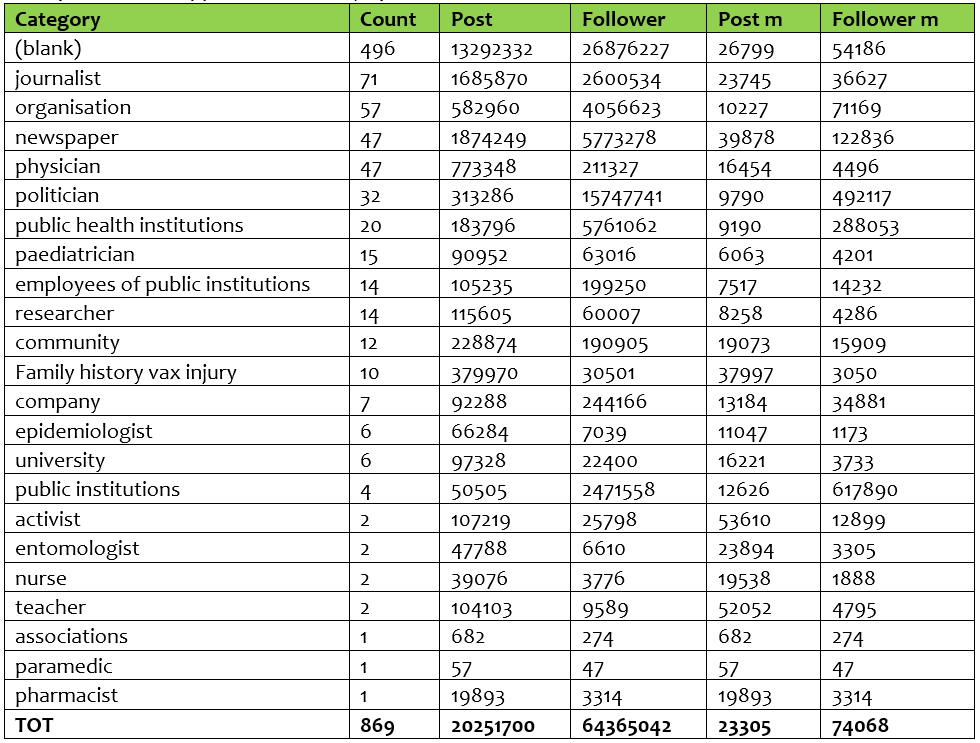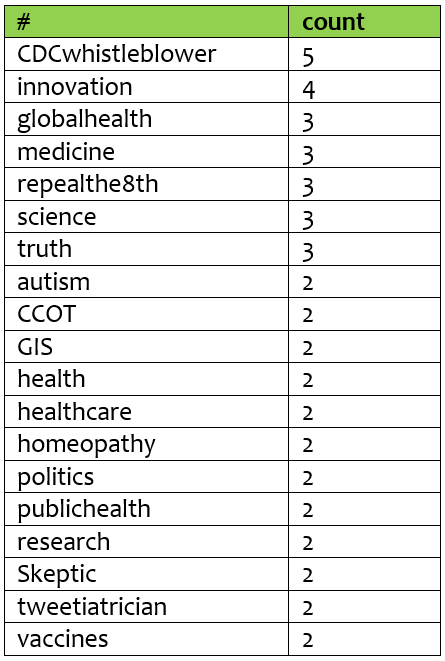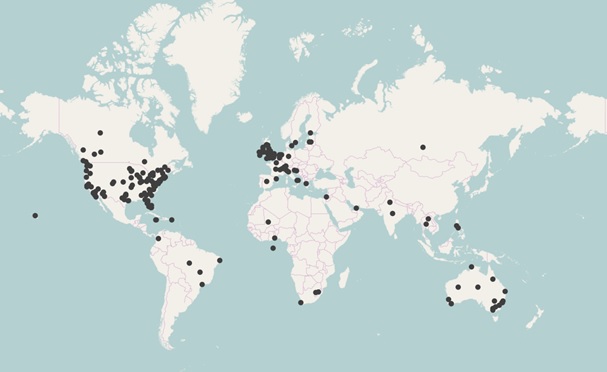Who is tweeting about vaccines?

During the period between October and December 2016, we used our algorithm to find out the most relevant Twitter influencers about vaccines. We performed a multilevel study to categorize the accounts and to identify the most relevant hashtags.
We analysed 869 accounts and categorized 373 of them:
- 85 belonged to health professionals (47 doctors, 15 paediatricians, 14 researchers, 6 epidemiologists and 3 healthcare assistants)
- 47 were media outlets
- 32 belonged to politicians
- 4 were public organizations
Public institutions (i.e. White House, WHO, CDC, Gates Foundation), politicians and media (i.e. Fox News) were the most popular accounts. Organisations and charities were highly represented too. Among personal accounts, Nancy Pelosi, Democrat spokesperson at the US Congress, has the highest number of followers (900K), followed by Jake Tapper (CNN journalist, 500K) and Jakaya Kikwete (former Tanzania president, actually involved in the promotion of vaccination campaigns). Ten accounts declared a family history related to supposed vaccine injury.

Most of the users used hashtag to describe their activity on Twitter, the most relevant being #CDCwhistleblower. This hashtag is strongly connected with the movie VAXXED released on 2016 and directed by Andrew Wakefield. This is a well-known name: in 1998, Wakefield published a study in The Lancet suggesting that vaccines caused autism. In 2010, the study was retracted following the report of serious ethical violations by Wakefield himself, whose UK medical license was then revoked. The movie is based on a conspiracy theory according to which there is a CDC whistleblower who revealed that the CDC manipulated the results of a study showing a link between vaccines and autism. The study – performed by two CDC employees, Frank De Stefano and William Thompson – confirmed that there is no evidence that children with autism were more likely to have received their first MMR vaccine earlier than neurotypical controls. However, a review of the same data led to a different conclusion, according to its author Brian Hooker: there is a strong correlation between MMR vaccine and autism in black male children who received the shot within their first 36 months of life. The Hooker’s paper was retracted too, due to “undeclared competing interests on the part of the author” and post-publication “concerns about the validity of the methods and statistical analysis”. Moreover, Thompson – the whistleblower – was not aware of being recorded over the phone and never watched the movie before its release. Nevertheless, the anti-vaccine movement continues to consider this story as a clear proof of public health institutions attempts to hid the truth about vaccines.
Following #CDCwhistleblower, our analysis found other relevant hashtags, as shown in the following table:

Geographical distribution
It is interesting to note that 52 users described themselves as a mom, while 28 as a dad. Among medical conditions explicitly cited in the accounts, we found 6 references to cancer and autism.

Debora Serra
